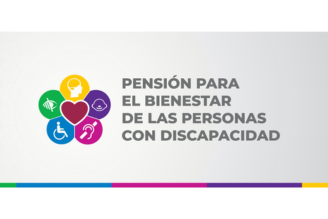Financial Independence: Take Advantage of Youth and Secure Your Future
Being young means making many crucial decisions. From adolescence to early adulthood, we are constantly experiencing new things, such as our first job, university and living on our own.
It is possible to make a financial plan in youth!
Discover simple ways to organize your financial life when you are young and save for the future.

In youth, a period in which we need to learn a lot, we are also shaping what the next decades of our adult life will be like.
Therefore, it is essential to understand the value of money early on.
Starting to organize your finances as soon as possible is a form of self-care, as having financial control provides peace of mind and autonomy to build the life you want and achieve your goals.
Although it is common for young people to want to quickly achieve independence—such as leaving home, buying a car, or anything else that represents freedom—it is important to stay calm and plan for financial stability.
This starts by managing your monthly income and expenses, identifying where you can cut costs and whether these actually make sense.
Use your money wisely
To make sure you're spending your money wisely, it's important to analyze your spending and question whether you really need what you're buying.
For example, if you have active subscriptions to more than one streaming platform, but only use one of them most of the time, does it make sense to keep both?
It may be more advantageous to share a subscription with a friend or family member, reducing costs and saving money to invest in something more profitable in the long term.
By reviewing each of your expenses, you can discover ways to save, such as cooking at home instead of ordering takeout frequently. This saving will allow you to have a reserve fund at the end of the month, avoiding the need to resort to loans.
And speaking of debt, a crucial point to which you should pay close attention is the use of credit cards.
Purchases that seem attractive, but require many months to pay off, often come with high interest rates, which can result in you paying almost double the original price.
Whenever possible, it is preferable to pay in cash and try to get a discount, or save money for a few months to avoid many installment payments.
Learn more about interests
Another important point is to understand how interest works. Compound interest, which accumulates and has a much larger impact over time, is different from simple interest.
Compound interest, which is applied to the principal amount and previous interest, can lead to indebtedness, especially in situations such as overdrafts, loans or financing of vehicles and real estate.
Accumulating debt with compound interest is a risk, especially for those who are starting out in their adult life.
However, interests are not always the big villains; they can also work in your favor through investments.
The same compound interest that can make a debt grow rapidly is what can increase your returns on investments such as a Direct Treasury or a RDC (Cooperative Deposit Receipt).
Therefore, it is worth exploring and educating yourself about the different investment options.
In summary, to achieve financial independence from a young age, it is important to follow three steps: review your expenses monthly, avoid long-term payments and financing, and study the best investment options to use the money you manage to save.
Always remember that youth is a crucial stage in establishing the foundations for a financially stable and successful adult life.
Taking advantage of this period to learn how to manage money responsibly, avoid unnecessary debts and make smart investments will not only allow you to achieve financial independence, but will also give you the freedom and security necessary to fulfill your dreams and long-term goals.
Making informed decisions and planning carefully now will allow you to build a more prosperous and fulfilling future.




